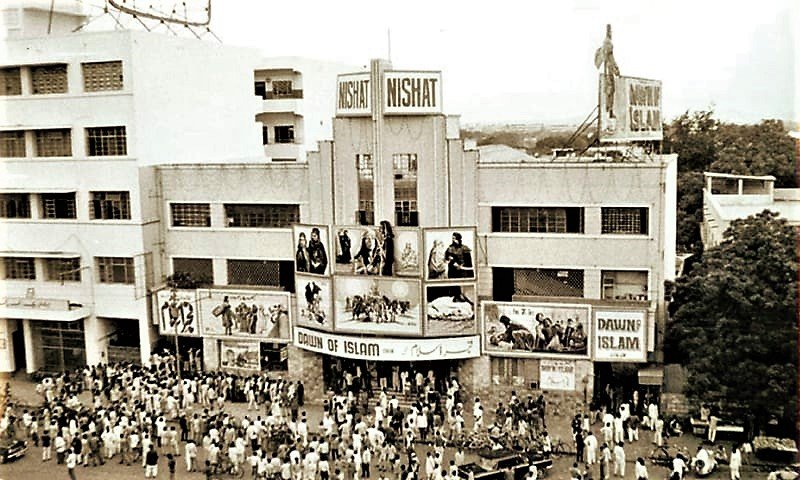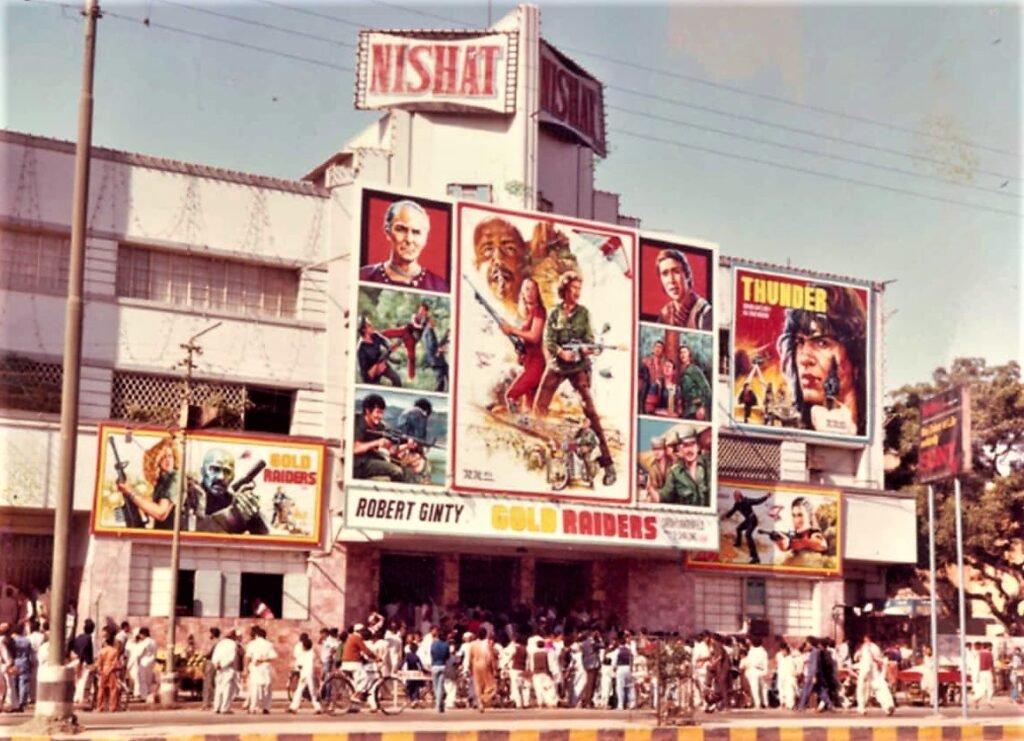Nadeem Mandviwalla is a respected name in the cinema industry, and who would not be wrong to be called the founder of modern cinema in Pakistan. Nishat Cinema, established even before the formation of Pakistan, used to be an important center of elite class film watching in Karachi. Nadeem Mandviwalla not only successfully ran this cinema for many years but also imported numerous Hollywood standard English films for Pakistani audiences. Whether it is talking about importing Bollywood movies to Pakistan or laying the foundation for digital cinema, Nadeem Mandviwalla has made every effort to keep cinema alive in Pakistan. This interview was recently conducted by S۔ M۔ Shakir for our official YouTube channel “Metro Live TV” which can be viewed on YouTube.

First of all, how do you get involved in the cinema business?
Nishat Cinema was before the establishment of Pakistan was made by Kandawala Sahib. Its history was told to me by Mr. Waheed Lutfi who was the manager in Nishat from day one. It was first run by Mr. Beg Muhammad then in 1963, my father bought it. When we grew up, we used to come and go to the cinema, from there the hobby developed into work. From 1980, I started to sit in the cinema regularly. My father passed away in 1987. After that, I was watching the whole project. At that time the state of cinema and industry was a mystery to me. I wondered why this business is so bad in our country despite everything. While in the rest of the world this work was going very well. After that, I took it as a challenge and raised the standard of my cinema so high that people started giving examples of vivacity and other cinemas started raising their standards.

It is alleged that you paved the way for the screening of Indian films in Pakistan?
The first Bollywood movie Mughal e Azam was released by me and this fight was not for Indian movies, it was to save Pakistani cinema. Indian movies were easily available everywhere, even today you are watching them everywhere on cable, OTT, and YouTube. We demanded that if our films could not produce the required production till then, at least Indian films should be screened to keep the cinema alive till then and you see what happened after that. Multiplexes began to form rapidly in Pakistan. People invested in cinema.

But ordinary moviegoers did not benefit from these multiplexes. They can’t afford such expensive tickets?
Look, cinema has changed all over the world. People pay for luxury if they have a good environment. When we opened the first digital multiplex atrium in Karachi in 2011, our single-screen cinema Nishat was also in operation at that time. Cinema has become more expensive around the world, but so have facilities. When the quality is good, the price will be different.
The majority of Pakistani filmmakers complain about these multiplexes and that their films do not get good shows. Is this done intentionally?
I will explain this question by saying that I am an Exhibitor, Producer, and Distributor. I produced the movie “Moor” in 2015. It was a different type of movie, which we can’t call commercial cinema. I guessed what would be the business of this movie so I gave it only two shows. In 2013, we released “Waar”. “Waar” was preceded by the Indian film “Boss” but we did ten shows of “Waar” because its business was better than “Boss”. Who forbade me to play ten shows of “Moor”? You pick up the record and see. On the occasion of Eid, we put Wrong Number, Bajrangi Bhai Jan, and Bin Roye in Atrium Cinema. The biggest business Wrong Number did. Then Bin Roye, and last was Bajrangi Bhai Jan. It was not that there was no demand for Bajrangi Bhai Jan, but we gave more shows to Wrong Number, and Bin Roye. Although the shows of all the three films were full, in such a situation we supported our films. It all depends on the public demand.

Pakistani filmmakers also complain that the commission for cinema is so high that it accounts for only 30% of the gross business?
The main reason for this is that your market is small. The problem is not with the commission, but with the circuit. If you make a film of 50 million and the picture becomes a super hit, but still they bring only 40 million, then what should be done? Even if we reduce the percentage, let’s say 50% to 40%, if there is still a loss, then 30%, then? This is never-ending. It is a matter of demand and supply. That is to say, it has no set formula. You go anywhere in the world, if no one knows your film or they are not interested in your film then we have to pay out of pocket, you have to hire a cinema. On the contrary, when a big studio makes a movie, the same cinema owner is paying out of his pocket to express his demand. The terms and conditions will be the same as the demand for your product.







